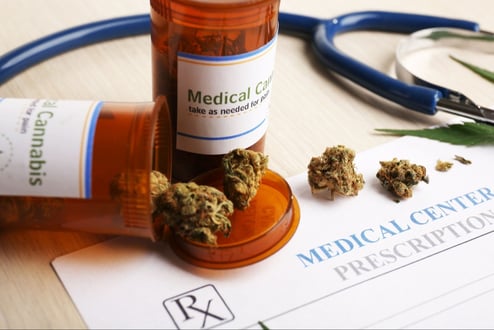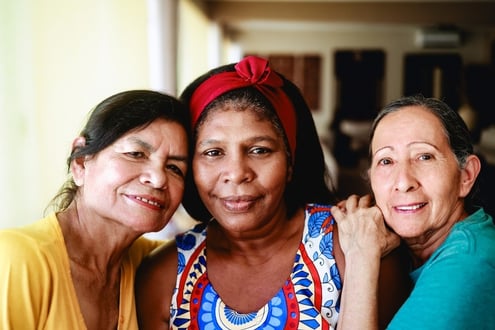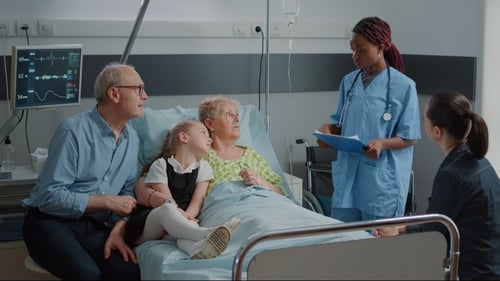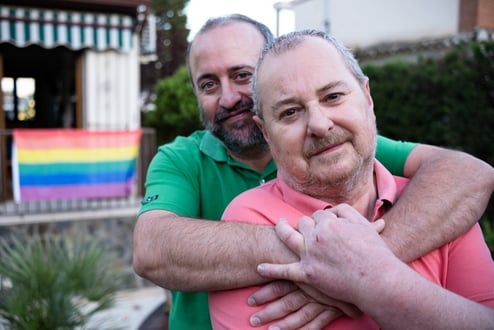Side Effects from Radiation Treatment
Radiation Therapy Side Effects
Radiation kills cancer cells. Unfortunately, radiation can damage or kill normal cells near the site receiving the radiation. This can lead to side effects, which vary depending on the type, dose, length, and location of the radiation. For people who experience side effects, there may be options for minimizing or eliminating some of these side effects. This section covers the following topics:
Managing side effects from radiation
Depending on the symptom, there may be options for minimizing or eliminating these side effects. Before starting radiation therapy, it's important to talk with your doctor about the following:
- possible treatment side effects, how serious they are, and how likely they are to occur.
- options for managing each side effect.
- who you should contact if you experience a side effect.
- which side effects are serious and should be seen by a doctor right away.
Some general tips for managing radiation side effects include:
- Stay well hydrated.
- Make sure you get the proper nutrition. Ask for a referral to a nutritionist if you need help.
- Use a symptom-tracking app to help you keep track of side effects and report them to your doctor. Some hospitals have apps that connect directly to your electronic health records.
- Consider participating in a clinical trial of new ways to manage radiation side effects.
What short-term side effects may be seen with radiation?
Below are some of the short-term side effects seen with radiation therapy. Side effects are dependent on the type, intensity and duration of radiation therapy and the site being treated.
|
|
|
|
|
|
|
|
|
|
|
Most of the symptoms above are temporary and resolve by several months after radiation ends. See below for more details and ways to manage each of the side effects listed above.
What long-term side effects may be seen with radiation?
Below are some of the long-term side effects seen with radiation therapy. Side effects are dependent on the type of radiation therapy and the site being treated.
|
|
|
|
Bowel effects
Short term problems from radiation to the pelvic, or rectal may include rectal pain, burning, painful bowel movements, bleeding and diarrhea. There are anti-diarrhea medications that can help with these symptoms, which are usually temporary. Laser therapy may stop rectal bleeding caused by radiation.
Dry mouth
Dry mouth is a common side affect of the radioligand therapy Pluvicto. Some tips for controling dry mouth include:
- Chewing gum or sucking on sugar-free candies or lemon drops.
- Limit caffeine intake because caffeine can make your mouth drier.
- Stay hydrated.
- Saliva substitutes are available without a prescription. Products that contain the sweetener xylitol may help the slow of saliva. Biotene is a brand that makes oral products such as toothpaste and mouth wash that can help alleviate dry mouth.
- Some medications, such as antihistamines can lead to dry mouth.
- Use a room humidifier to add moisture to the air.
Fatigue
Fatigue may be caused by cancer or treatments, including radiation. You should report fatigue to you doctors so they can check and treat you for underlying causes, including depression, sleep disturbances and medication side effects. You may be able to improve your energy level with these suggestions:
- making sure that your diet is balanced and provides you with adequate nutrition. Ask your doctor for a referral to a nutritionist if you need help figuring out your nutritional needs.
- making sure that you get adequate sleep.
- trying to stay physically active, which can help improve your energy level.
- Some research has shown a benefit from yoga to improve energy levels.
Fertility issues
Some radiation therapy can cause early menopause in women and low sperm counts in men. These changes may be temporary or permanent. Options are available for men and women who are diagnosed with cancer and wish to preserve their fertility. It's important to discuss fertility preservation before starting treatment for cancer.
Heart damage
Radiation to the chest may cause heart damage later. Before you start radiation therapy, ask your oncologist what steps they will take to minimize radiation exposure to your heart. Your oncologist may run tests to make sure that your heart function is normal before, during and after radiation.
is fluid buildup and swelling that can develop in the arms, legs or other part of the body, after radiation therapy. The swelling and fluid may be mild to severe and can cause pain, infection and loss of mobility. can happen immediately or months or years after treatment.
is usually managed with special massage and compression garments. This is most effective when it is caught early. In some circumstances, that progresses can be managed with surgery.
Nausea, vomiting and appetite changes
Several different medications help to reduce nausea during treatment. This can improve appetite, reduce weight loss and support a balanced diet—referral to a nutritionist can help assure that you maintain a balanced diet during treatment. Certain foods may be more or less likely to trigger nausea, vomiting or upset stomach.
Second cancers
Radiation damage to normal cells can cause a new cancer to develop. It's important to speak with your oncologist about steps they will take to protect other tissue from radiation. It's also important to ask your oncologist how they will monitor you for second cancers after treatment. For example, radiation to the of the neck after breast cancer may increase the long-term risk for thyroid cancer. Knowing this information can help you take steps to detect these cancers early.
Sexual side effects
During radiation damage to the skin may make sex painful. Your doctor may recommend avoiding sex during radiation treatment. In men, radiation may damage nerves and affect the ability to have erections. This may be a short-term or longer-term problem. Speak to your doctor about options for managing any sexual side effects that persist after treatment ends.
Skin changes
Radiation can damage skin cells as it passes through the skin to the area being treated. This can lead to pain, swelling, redness, and sunburn-like damage to skin. Overtime, as with a sunburn, the skin may be itchy, dry or flake or peel. There are things you can do to improve the discomfort, such as wearing loose-fitting clothes made of soft fabrics, protecting your skin from sun exposure, using only mild soaps and products approved by your doctor on your treated skin. There may also be medications and creams or ointments that your doctor may prescribe to help ease the skin pain and discomfort from radiation.
Urinary effects
Frequent or painful urination or bladder leakage (incontinence) may occur during radiation to the pelvis or . Damage to the bladder can result in chronic bleeding from the bladder. Your doctor may have medications or strategies such as pelvic floor strengthening to improve incontinence and medication to reduce urinary frequency that persists after treatment ends.
In the News
This review summarizes the results of the TALAPRO2 study. It looked at how well the PARP inhibitor Talzenna (talazoparib) works...
Treatment before surgery with a combination of targeted therapy and chemotherapy resulted in longer survival for people with an inherited...
Study : Two immunotherapy drugs are better than one for some metastatic colorectal cancers
Combining two immunotherapy drugs is a more effective treatment for certain metastatic colorectal cancers than using either treatment drug alone....
Topic : Addressing the needs of young adults with breast cancer
This update addresses common concerns faced by young adults with breast cancer, particularly fertility and childbearing, psychosocial health and treatment-related...
Study : Use of cannabis for cancer symptom management
Among people with cancer, interest in the use of cannabis to manage cancer symptoms and treatment side effects is high....
Study : Managing the side effects of advanced endometrial cancer treatment
Immunotherapy plus targeted therapy is a treatment option for advanced endometrial cancer that has progressed after prior treatment. People who...
Update : News from the FDA: First-line treatment and biosimilars for prostate cancer
The FDA recently approved a first-line treatment for non-metastatic, castration-sensitive prostate cancer. Approval was also given to two new drugs...
Topic : Acupressure for cancer symptom relief
Acupressure is a safe treatment that can be used to relieve some symptoms of cancer and side effects of treatment....
Topic : Experts call for early palliative care for cancer patients
People with cancer need support and care not only at the end of life but from the time of diagnosis....
Topic : Sexual health concerns of gay and bisexual men with prostate cancer
Prostate cancer therapy can affect gay and bisexual men differently than heterosexual men. Many urologists do not routinely address these...
Topic : Sex and intimacy after breast cancer
A breast cancer diagnosis and treatment can affect relationships with romantic partners. This review highlights two studies that looked at...
A large study looked at the effects of adding the bone-protective drug denosumab (Prolia), to standard hormone therapy for the...











